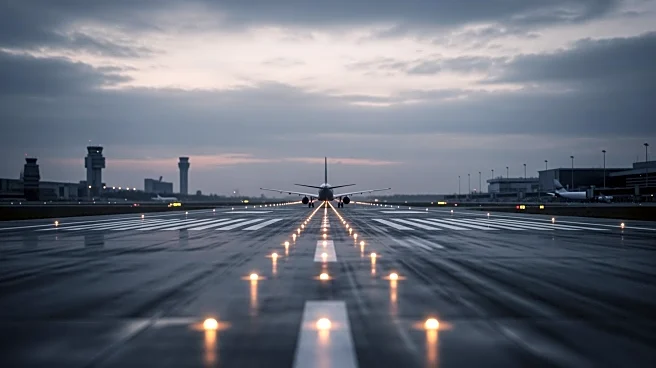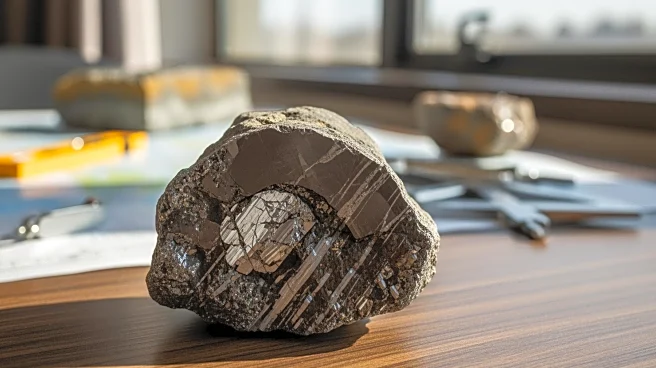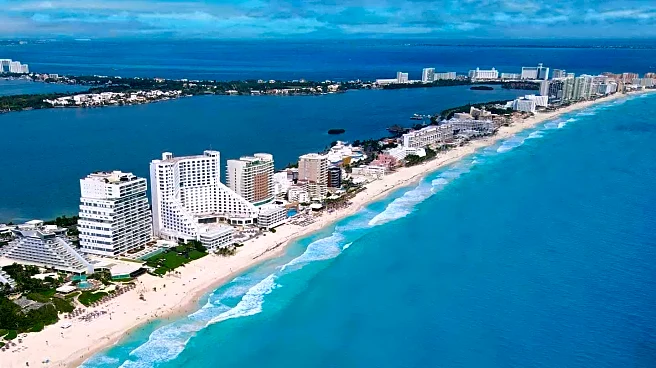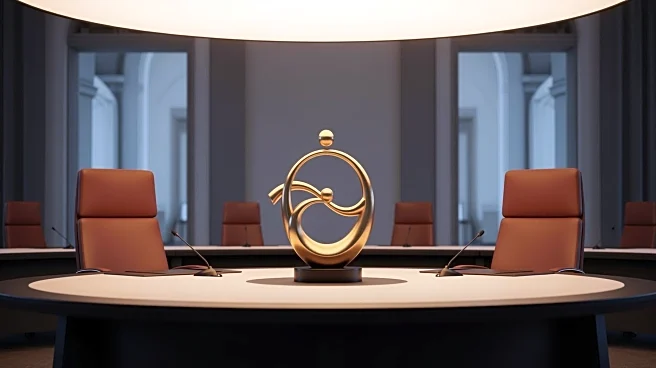What's Happening?
Jordan's King Abdullah II has arrived in Pakistan for high-level discussions aimed at renewing and expanding bilateral ties between the two nations. This visit marks the first time a Jordanian monarch has traveled to Pakistan in over two decades, highlighting
the significance of the meeting. The discussions are expected to cover various aspects of cooperation, including economic, political, and cultural exchanges. King Abdullah's visit follows his address at the 79th United Nations General Assembly in New York, where he emphasized the importance of international collaboration and dialogue.
Why It's Important?
The renewal of relations between Jordan and Pakistan could have significant implications for both countries, particularly in terms of economic and political cooperation. Strengthened ties may lead to increased trade and investment opportunities, benefiting both economies. Additionally, the collaboration could enhance regional stability and security, as both nations face challenges related to geopolitical tensions and economic development. The visit underscores Jordan's strategic interest in expanding its diplomatic reach and fostering partnerships beyond its immediate region.
What's Next?
Following the high-level talks, both countries are expected to outline specific areas of cooperation and potentially sign agreements to formalize their renewed partnership. The outcomes of these discussions could lead to joint initiatives in sectors such as trade, defense, and cultural exchange. Observers will be watching for any announcements regarding new projects or collaborations that could further solidify the relationship between Jordan and Pakistan. The visit may also prompt other countries in the region to consider similar diplomatic engagements.
Beyond the Headlines
The visit by King Abdullah to Pakistan may also have broader implications for regional diplomacy, as it signals Jordan's willingness to engage with countries outside its traditional sphere of influence. This move could encourage other Middle Eastern nations to pursue similar diplomatic efforts, potentially leading to a more interconnected and cooperative regional landscape. Additionally, the focus on renewing ties after a long hiatus highlights the importance of maintaining and revitalizing international relationships in a rapidly changing global environment.















